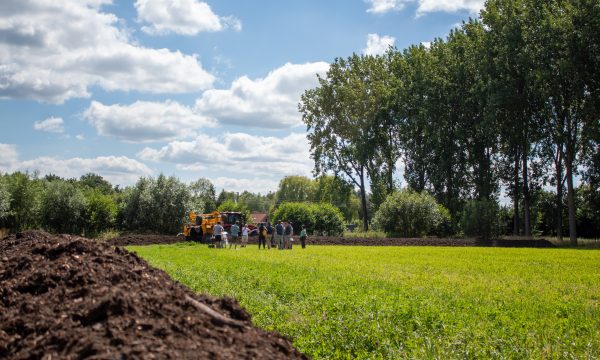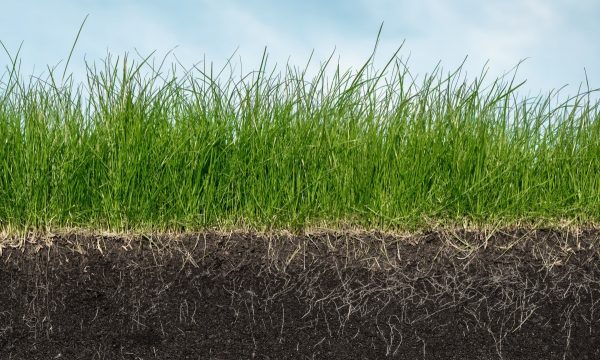Press release Peat-free potting soil another step closer. Beneficial microorganisms in peat alternatives can stimulate plant growth and health.
The microorganisms naturally present in peat alternatives such as compost and (natural) management residues can stimulate plant growth as well as naturally suppress plant diseases, often even better than peat. Moreover, various methods (e.g. fertilization and the addition of artificial root exudates) can strongly influence these same microorganisms, so that they can stimulate plant growth and health even more. That's what the doctoral research of Steffi Pot at KULeuven Campus Geel in collaboration with ILVO and PCS shows. For horticulturists, this is good news. It brings them another step closer to high-performance peat substitutes.

In the transition to a sustainable horticultural sector, growers need to move away from the use of peat and chemical pesticides, as peat is a finite fossil resource and its extraction has a negative impact on the environment. Changes in Flemish and European legislation and growing pressure from consumers are driving research into sustainable peat alternatives.
Composts and management residues (that is the biomass released during the management of natural areas, such as heathlands and forests) are interesting alternatives to peat. Previous research showed that management residues and compost have similar characteristics from a chemical and physical standpoint and can therefore be suitable alternatives to peat substrates. Moreover, the microorganisms in compost and management residues can contribute to plant growth and health. This could also reduce the use of chemical pesticides in horticulture. Nevertheless, the microbial aspect of sustainable horticultural substrates has remained underexposed until now.Relationship between microbial characteristics and plant growth and health
During her doctoral studies, researcher Steffi Pot studied the microbial communities in compost and management residues from local natural areas and their role in plant growth and health. She came to the interesting conclusion that all subtypes of compost and all subtypes of management residues are also competitive with peat substrates from a microbiological standpoint. Moreover, compost and management residues contain more beneficial microorganisms and have a greater microbial biomass than peat, and this may result in better plant growth and health. In addition, management residue-based substrates combined with certain fertilizers were also found to be effective in suppressing root pathogens, owing to the composition of the rhizosphere microbiome.
To further optimize plant growth and health, it would be useful to be able to influence the microorganisms in sustainable horticultural substrates. Pot also explored this in her dissertation. Adding substances that mimic the natural root secretion of plants (artificial root exudates) proved to be a suitable method to control the microorganisms in compost-based substrates. Other treatments of composts, such as acidification and screening, proved less suitable for influencing microorganisms.Towards successful implementation of compost and management residues
Pot succeeded in focusing on the potential of composts and management residues as peat substitutes from a microbiological standpoint. Her dissertation thus provides an important basis for further applied research that can contribute to the successful implementation of compost and management residues in the horticultural sector.
Contact:
- steffi.pot@kuleuven.be
- Jane.debode@ilvo.vlaanderen.be / +3292722480
- karen.vancampenhout@kuleuven.be
- ilse.delcour@pcsierteelt.be



